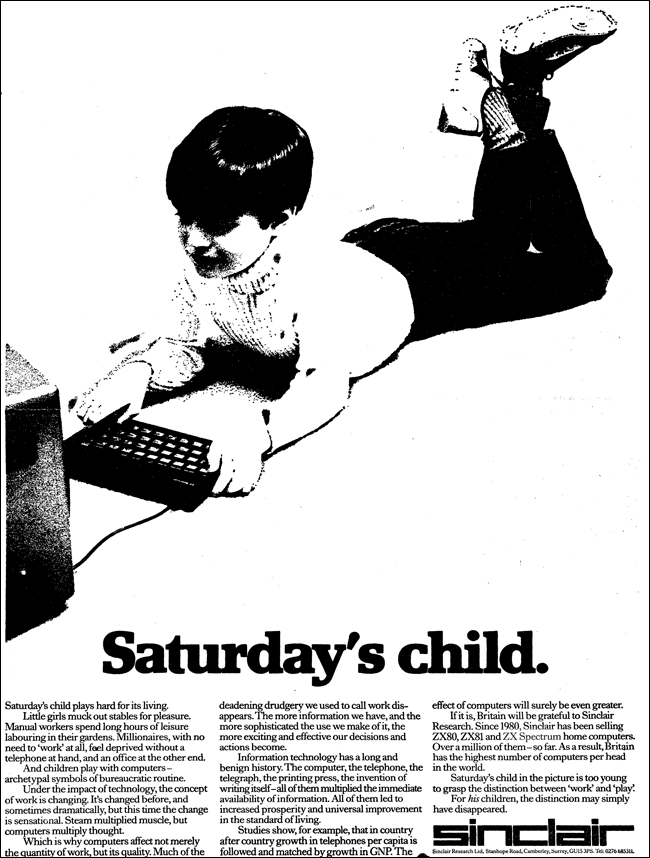“Steam multiplied muscle, but computers multiply thought” - Sinclair digital literacy rallying cry from 1983
Given that the Guardian has just been running a series about digital literacy and teaching our children to program in schools, I thought it might be worth digging this advert out of the archive.
It appeared in the Observer on Sunday 22 May 1983. Here is the text in full:
“Saturday’s child plays hard for its living.
Little girls muck out stables for pleasure. Manual workers spend long hours of leisure labouring in their gardens. Millionaires with no need to ‘work’ at all, feel deprived without a telephone at hand, and an office at the other end.
And children play with computers - archetypal symbols of bureaucratic routine.
Under the impact of technology, the concept of work is changing. It’s changed before, and sometimes dramatically, but this time the change is sensational. Steam multiplied muscle, but computers multiply thought.
Which is why computers affect not merely the quantity of work, but its quality. Much of the deadening drudgery we used to call work disappears. The more information we have, and the more sophisticated the use we make of it, the more exciting and effective our decisions and actions become.
Information technology has a long and benign history. The computer, the telephone, the telegraph, the printing press, the invention of writing itself - all of them multiplied the immediate availability of information. All of them led to increased prosperity and universal improvement in the standard of living.
Studies show, for example, that in country after country growth in telephones per capita is followed and matched by growth in GNP. The effect of computers will surely be even greater.
If it is, Britain will be grateful to Sinclair Research. Since 1980, Sinclair has been selling ZX80, ZX81 and ZX Spectrum home computers. Over a million of them - so far. As a result, Britain has the highest number of computers per head in the world.
Saturday’s child in the picture is too young to grasp the distinction between ‘work’ and ‘play’.
For his children, the distinction may simply have disappeared.”
